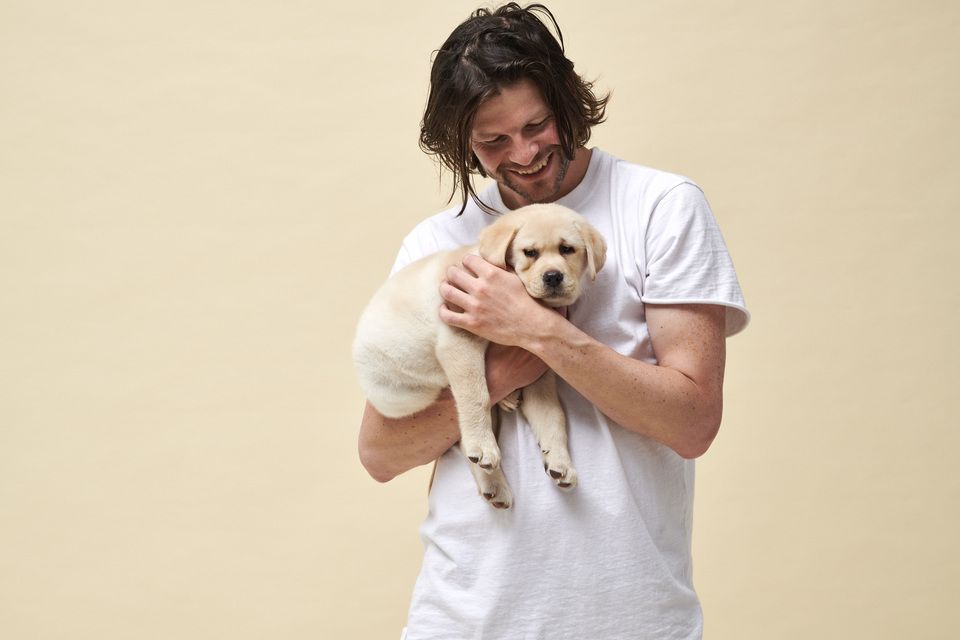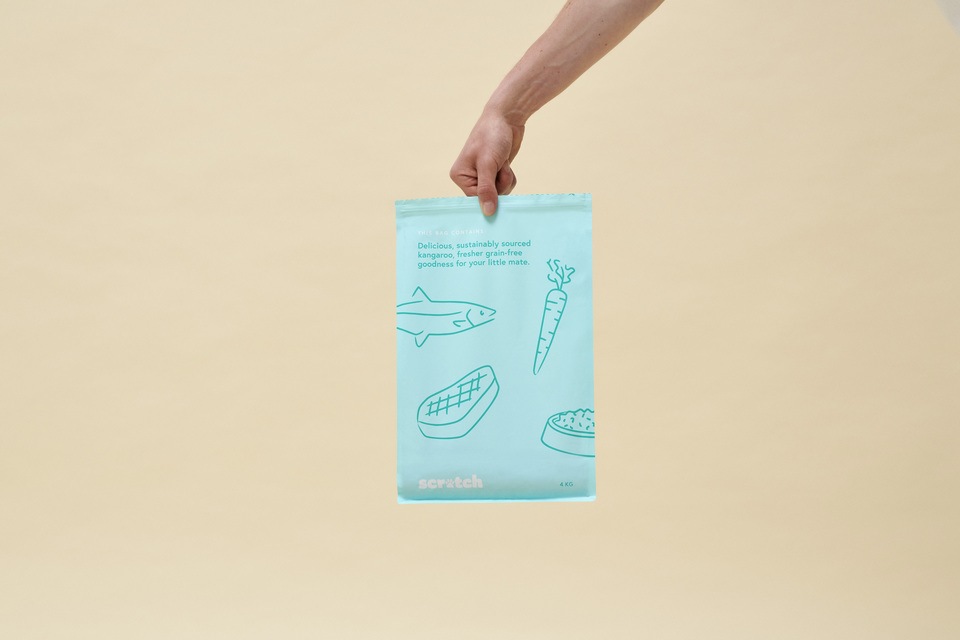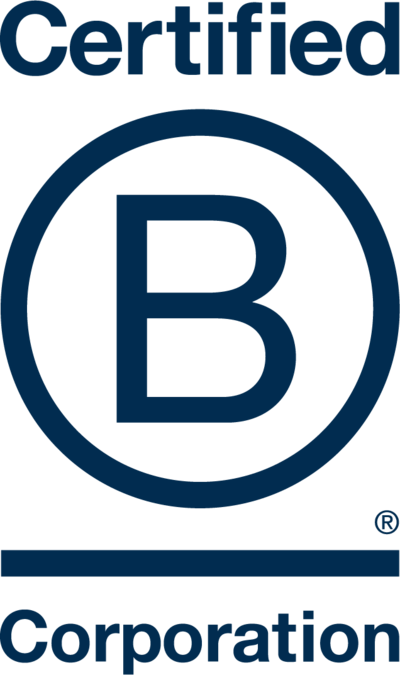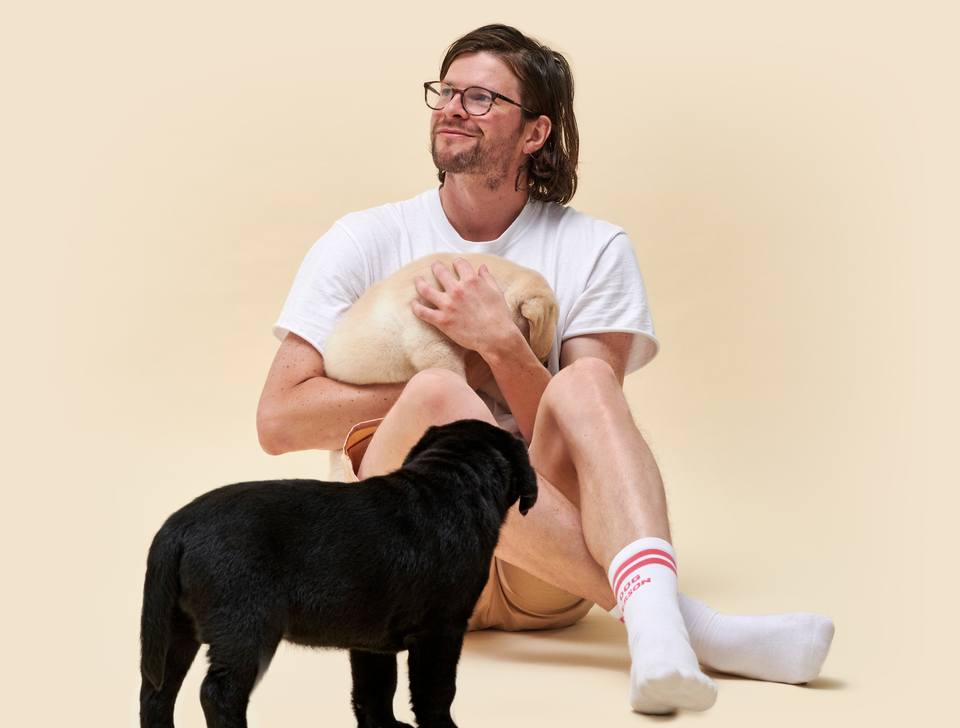A chat with our co-founder Mike on how businesses can do better
Oops… we got on our high horse there. Let’s pass the mic over to Mike Halligan, co-founder of Scratch, lover of dogs and two-time Brownlow Medallist* so he can chat about better business, ethical dog food and how you can do right by your furry mate.
* only in his dreams
Hey Mike, so what drew you to the dog food industry?
I was actually working in ecommerce for some fashion companies so I might be the only person to go from fashion to dog food! We had a cocker spaniel (RIP Brandy) who was getting older and towards her twilight years. I was starting to look more into the role food played but honestly just didn’t trust anything I could see. Dog food isn’t even regulated here! There were so many generic statements and celebrity vets but the biggest thing was that you couldn’t actually see what was in different dog foods and make a clear comparison between them. If I go to Coles, I can see the labels and work out what’s healthy for me, but I was trying to care for a sick dog and found it impossible.
So Scratch really started from wanting to make dog food that you could trust.
How does Scratch do things differently?
One of the first things I learned was how little money goes into the actual food and how much goes into the steps along the way – marketing, profit, distributors, stores, discounts. It’s an old-school model of making something in bulk with the cheapest ingredients you can and then putting it on trucks to a bunch of stores.
I’d worked in direct to consumer (DTC) and knew how much better value you could make something if you skipped the middle men and sold it straight to the customers. There were enough cheap foods already so I decided to focus not on price, but basically making the best possible dry food that I could. Along the way, I met my business partner Doug who had been sourcing ingredients and designing recipes for big pet food but was just about to quit as he saw how much cost cutting went on once he had developed a healthy product.
One of the things that many DTC companies do is spend huge amounts of money on marketing, so from the start we just went 100% values-based and ignored growth. Scratch differs in a few main ways:
- We spend about 40% more on our ingredients than similarly priced food
- We include only whole ingredients from Australian farmers and not powdered stuff from overseas
- We’re disciplined (some would say tight) with our marketing so we keep the running of the business as sustainable as possible and the food the best value we can.
- We share everything – recipes, donation amounts, what we’ve learnt. The pet food industry sucks and we’re not trying to be the biggest brand in the country so we figure we can at least lead others to adopt a business model that puts dogs first.
What are some of the ways Scratch is more transparent?
Being an ethical dog food company starts with food. We’re the only brand in the country to disclose the % of our ingredients. There’s a huge difference to your dog’s nutrition if you’ve got one recipe that is 30% lamb and 5% pea protein and another that is 20% pea protein and 15% lamb. Both have the same ingredients but very different long-term health outcomes for your dog. Right now, you can’t actually tell that from any recipe except Scratch.
We bring this transparency through to the way we do business too. We know what we care about (dogs, the environment and having a laugh) and what we don’t (being the biggest or most profitable) which makes it so much easier to do things that benefit consumers. We donate 2% of all revenue, audit ourselves, share our figures, work remotely, manage for performance rather than hours in an office, trust people, trust our customers and hire without the usual bias.
A lot of brands say they’re for something (like charity), but won’t follow through if it means reducing sales or profit. We’re happy to give things up in order to be really good at the things we care about.

Why does transparency matter?
Because without transparency, it’s all guesswork. We ask ourselves, ‘if someone was to discover everything they could about Scratch dog food and how we do business, would that strengthen their trust in us or would they be shocked (in a bad way)?’ You shouldn’t have to guess and hope that a food is healthy. You should be able to talk easily to the people who made it. And you should be able to see what difference the company has made in the past and not just have to hope that headlines about sustainability and giving are matched by actions. You can’t really have ethical dog food without prioritising transparency.
Wasn’t there a Senate inquiry into dog food?
Ha! Yeah, though they seem to have forgotten about it. There was a Senate inquiry into the dog food industry 3 years ago now. At the time, the inquiry found that brands weren’t accountable for the harm caused by their food, that labelling wasn’t clear and that dog owners were worse off in many ways.
They set up a ‘working group’ to decide on the next course of action but didn’t disclose who is actually in the group. Since then, not a single thing has been released and not a single thing has changed. It’s what you get when 90% of the industry is owned by 4 giant overseas companies.
Is this all good for business? Or does it mean sacrificing the bottom line?
I think we’re bigger in customer size but less profitable as a result. Plenty of people care about honest business, or just want plain old better food and can see what’s in Scratch. Others value our environmental work and transparent charity. So it’s definitely found us customers that we wouldn’t have gotten. I mean there are so many dog food options it’s nuts.
That’s cool with us. We just focus on being sustainable – for our customers to know we do things in a way that has their dog’s back for the next decade, for our team to know that we have their long-term wellbeing in mind and for our suppliers to produce good food for us and know we’ll pay our bills. We work really hard at doing business well so we can give back, still grow, help more dogs and know that we can keep food in the bowl.

Do you have any tips on what customers can look out for when it comes to cutting through the bullshit in dog food labelling?
Sure. Ignore which ingredient is first on the label (marketing speak for we’ve gamed the label so you think it’s healthy) and ask the brand how much meat is included on a dry matter basis. There are so many sneaky things that are done in the pet food industry, but one of the worst is weighing meat when it’s hydrated (and weighs at its maximum) but comparing it to grains and veggies when dehydrated (and a fraction of their original weight). It’s how you get those claims like 80% meat when if both were weighed in the same manner, meat might actually be 10 or 20% of the food.
Where to next? What’s the future of dog food look like in your wildest dreams?
Everyone adopting our honest labelling standards. That would be HUGE and people could tell the difference between foods so much more easily. We don’t all have to be saints and I don’t expect the big guys to care about ethical dog food any time soon, but we need people to know what they’re buying.
I hope more dry food brands pop up to sell food directly to dog owners too because most dry food is crap and I 100% believe our model allows businesses like ours to produce better food than the store model.
Alright, last question, favourite breed of dog?
Bernese Mountain Dog… but the Nova Scotia Duck Tolling Retriever is a close second.

We’re Australia’s only B Corp certified dog food
Your dog can now be part of the B Corp community of businesses doing good.
After a rigorous accreditation process, we’ve been recognised as a world leader in sustainable and responsible business, building impact, transparency and environment consciousness into every aspect of how we work.




